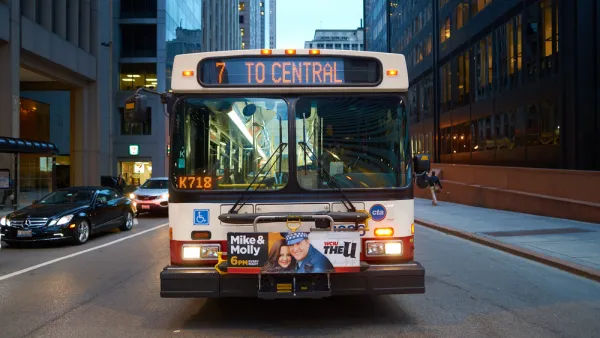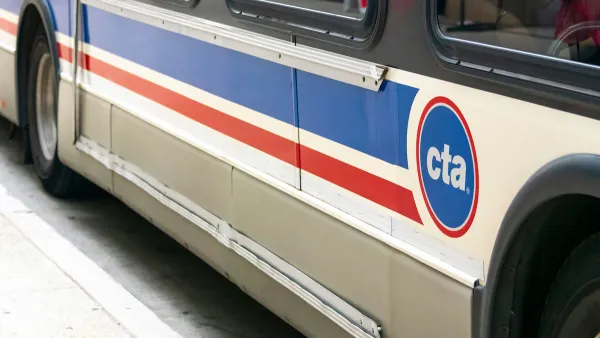The proposed Ashland Bus Rapid Transit line in Chicago, the latest effort in an ambitious multi-modal transportation investment plan by Mayor Rahm Emanuel and former Chicago DOT Commissioner Gabe Klein, is a game changer for an already unique city.
Matt Dellinger’s analysis begins with a description of Chicago’s unique qualities as an urban metropolis. First of all, Chicago is both car-oriented and transit-friendly, which explains why its recent plan for bus-rapid transit along Ashland Avenue became controversial. And, “[the] planned 16-mile Ashland BRT would affect a cross-section of Chicago that contains all of the city's ethnicities, income levels, and zoning types.”
The benefits of the line are to provide a north-south transit corridor to connect the L lines without passing through downtown. The BRT proposal is a low-cost alternative to “a new rail link, the ‘Circle Line,’ which would have required new subway and elevated track at a cost of over a billion dollars,” reports Dellinger.
Most of Dellinger’s copy is devoted to sharing the voices of the project’s many proponents and opponents; both sides are reacting from an assumption that the proposed BRT would effect a fundamental change in the city of Chicago.
FULL STORY: Chicago's Big Bet on the Bus

Analysis: Cybertruck Fatality Rate Far Exceeds That of Ford Pinto
The Tesla Cybertruck was recalled seven times last year.

National Parks Layoffs Will Cause Communities to Lose Billions
Thousands of essential park workers were laid off this week, just before the busy spring break season.

Retro-silient?: America’s First “Eco-burb,” The Woodlands Turns 50
A master-planned community north of Houston offers lessons on green infrastructure and resilient design, but falls short of its founder’s lofty affordability and walkability goals.

Test News Post 1
This is a summary

Analysis: Cybertruck Fatality Rate Far Exceeds That of Ford Pinto
The Tesla Cybertruck was recalled seven times last year.

Test News Headline 46
Test for the image on the front page.
Urban Design for Planners 1: Software Tools
This six-course series explores essential urban design concepts using open source software and equips planners with the tools they need to participate fully in the urban design process.
Planning for Universal Design
Learn the tools for implementing Universal Design in planning regulations.
EMC Planning Group, Inc.
Planetizen
Planetizen
Mpact (formerly Rail~Volution)
Great Falls Development Authority, Inc.
HUDs Office of Policy Development and Research
NYU Wagner Graduate School of Public Service



























